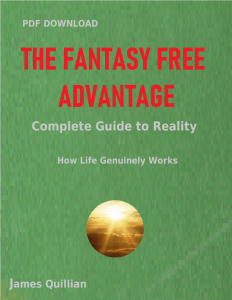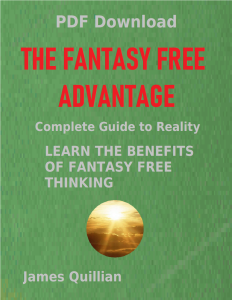 As you might have learned, in fantasy free analysis, I treat institutions and people according to how they function and pay no mind to how they are defined. While in the global mindset, Google is deemed to be a search engine. Countless other deemed “search engines”, populate the internet as well. Each copies the Google model as best as possible while providing a bit of uniqueness to make it seem different. Yes, Google defined itself as a search engine, but then over time morphed itself into something else. Basically, Google lets you find what is most profitable for Google to let you see. According to the way it functions, Google functions as a means of controlling and directing commerce. Is that what a search engine does? In my work, I treat Google in terms of how it functions. There is no official term that describes how Google functions. It is not a search engine. The world treats Google as a search engine nonetheless.
As you might have learned, in fantasy free analysis, I treat institutions and people according to how they function and pay no mind to how they are defined. While in the global mindset, Google is deemed to be a search engine. Countless other deemed “search engines”, populate the internet as well. Each copies the Google model as best as possible while providing a bit of uniqueness to make it seem different. Yes, Google defined itself as a search engine, but then over time morphed itself into something else. Basically, Google lets you find what is most profitable for Google to let you see. According to the way it functions, Google functions as a means of controlling and directing commerce. Is that what a search engine does? In my work, I treat Google in terms of how it functions. There is no official term that describes how Google functions. It is not a search engine. The world treats Google as a search engine nonetheless.
My point here is that there is a genuine profit opportunity for others who understand that there is a huge unfulfilled demand and need for a genuine search engine. In time, that will be realized and the search engine reality gap between what Google really is and the perception of what it is will start closing.
Some enterprising individual who knows the ins and outs of the tech industry will grasp the following. He will reason. “Hey, I don’t need to copy Google or big tech at all. All I need to do is carve out a small niche in the market and I can make a fine income for myself.” That will mark a great change in the tech industry and the existing order will start to crumble.
I have mentioned the emergence of Instacart. There is no way Instacart will fail to cut into profits of Amazon and Walmart. Where did the idea of Instacart come from? Someone must have noticed that wants and needs of consumers were not being fulfilled. That is how economics works. It is out with the old and in with the new. This system can be time delayed by countless monumental efforts to maintain the status quo of the current economic scene. In the end, market forces prevail.
Big tech thrives on ads and mouse clicks. There are too many ads and not enough consumers.
Note: Fantasy Free Economics is banned in the United States. I am now hosting with Smartway, which is offshore. From the positive results I have gotten, I would host with them regardless. I encourage all to ask themselves – have you ever read anything here on Fantasy Free Economics that could be deemed unfit for the common person to read? Is there any content that is a threat to national security?
The only way to rebuild the readership of Fantasy Free Economics is for those who read it to share the link to the blog and certain articles. Email is best. It cannot be censored. There are still sites which accept the link. Try it and see.
James Quillian is not Tucker Carlson. I wish him well – as I hope all do. When a famous person get censored, he has the resources to make hay over the situation. I have no such resources. I must be frugal – just to meet my expenses. If you like these ideas, I hope you will participate by at least sharing the link.
The Fantasy Free Advantage is a PDF book explains the reasoning behind the fantasy free approach.
Common Thinking Errors This article provides a genuine shortcut to thinking and analyzing in the light of reality.
Views: 193

